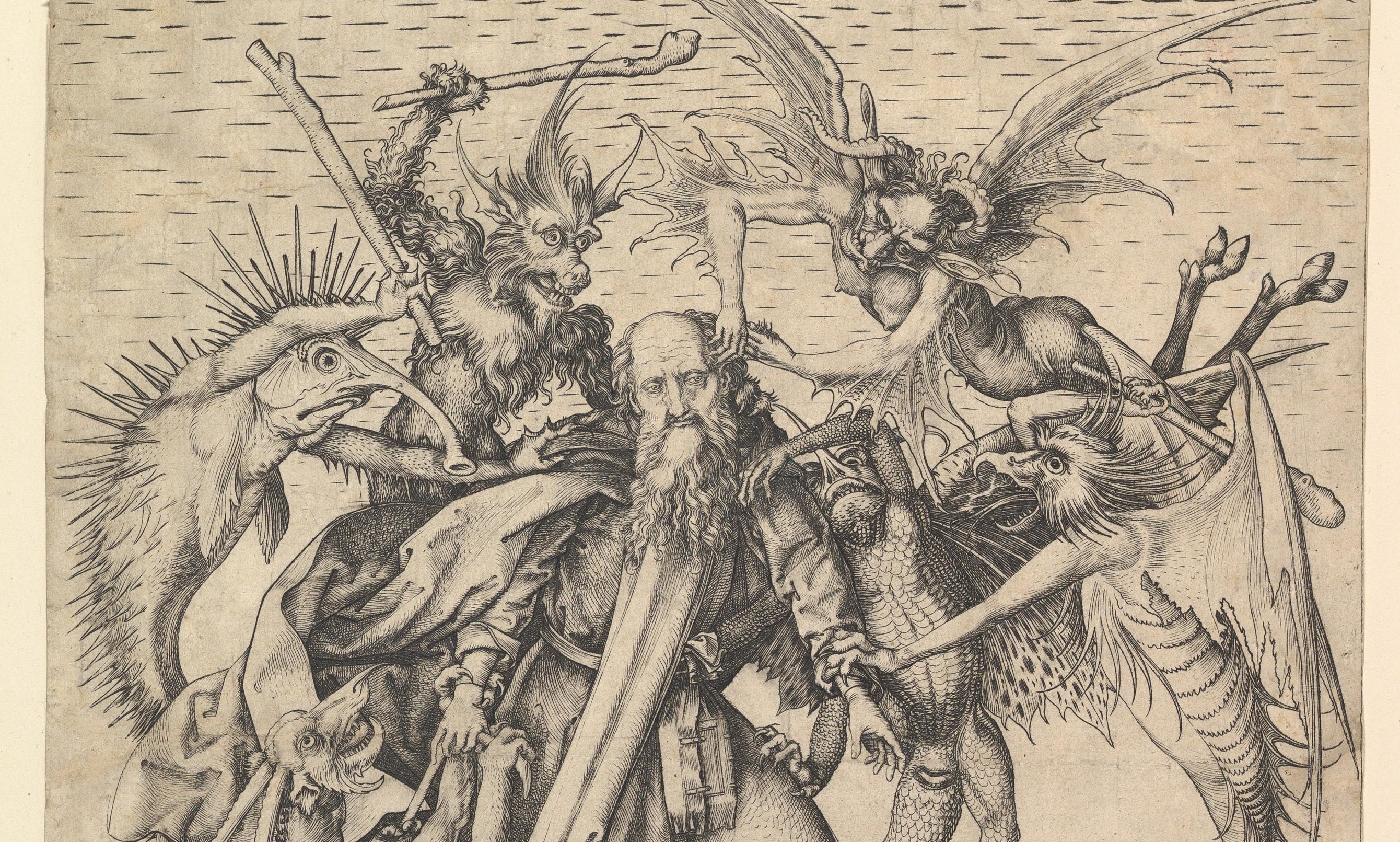St. Anthony of the Desert is considered the Father of Monasticism. Not because he was the first monk but because he was the first to venture deep into the wilderness. St. Athanasius reports that although there were monks in Egypt before Anthony, they all remained near their homes. Anthony lived with an old man for a time to learn how to be an ascetic. When he resolved to head into the deep desert, he asked this same old man to join him. The old man, however, “declined on account of his great age, and because as yet there was no such custom.” So Anthony set off into the desert alone.
By his journey into the desert, St. Anthony models the fuga mundi (flight from the world) that characterizes true monastic life. This flight from the world is not the flight of a coward nor the avoidance of hardship or the total abandonment of all people. The monk who flees the world cares deeply for those in the world. In fact, by fleeing the world the monk enters into a spiritual combat for those still in the world.
This spiritual combat was clearly evident in the life of St. Anthony. The three traditional sources of temptation are the world, the flesh, and the devil. By fleeing the world, St. Anthony avoided the first. By disciplining his body through fasting and other mortifications he quieted the second. His main struggle in the desert, then, was with the devil. St. Anthony was frequently visited with the torments of demons. It was for this combat that he fled into the desert.
There then he passed his life, and endured such great wrestlings, ‘Not against flesh and blood’ (Ephesians 6:12), as it is written, but against opposing demons, as we learned from those who visited him. For there they heard tumults, many voices, and, as it were, the clash of arms. At night they saw the mountain become full of wild beasts, and him also fighting as though against visible beings, and praying against them. And those who came to him he encouraged, while kneeling he contended and prayed to the Lord. Surely it was a marvellous thing that a man, alone in such a desert, feared neither the demons who rose up against him, nor the fierceness of the four-footed beasts and creeping things, for all they were so many. But in truth, as it is written, ‘He trusted in the Lord as Mount Sion,’ with a mind unshaken and undisturbed; so that the demons rather fled from him, and the wild beasts, as it is written (Job 5:23), ‘kept peace with him.’
Although he had few worldly cares, St. Anthony had many tribulations from evil spirits. The monk fights more intensely the spiritual battle that all Christians must fight. Indeed, whenever each of us, be we monk or layman, advances in holiness, the demons increase their temptations and hinder us by evil thoughts. However, we need not fear these temptations of the devils since they will fail if we persevere in prayer, fasting, and faith in the Lord. We see that even in the midst of his spiritual struggles, when others would come to visit Anthony, he was able to encourage them. One of the greatest gifts that holy men and women receive through struggling in the spiritual combat is this ability to encourage and strengthen others who come to them for help. It is why so many of the stories of the Desert Fathers show men and women seeking them out in the wilderness and why even today monasteries are excellent places to make a retreat and to receive spiritual direction from holy monks.
One of the helps that St. Anthony recommended in this spiritual combat is to make use of the sign of the cross. He gave this advice: “the demons make their seeming onslaughts against those who are cowardly. Sign yourselves therefore with the cross, and depart boldly, and let these make sport for themselves.” For St. Anthony, the sign of the cross is not simply a habitual action used to begin prayer, but rather a powerful defense that fortifies a Christian to resist the temptations of evil spirits. The sign of the cross invokes both the cross by which Christ overcame the power of the devil and also the name of the Holy Trinity. As St. Anthony says, “Where the sign of the Cross is, magic is weak and witchcraft has no strength.” We, therefore, should not be casual in making the sign of the cross, but recognize the great power present in the sign we make. Furthermore, we should make this sign as frequently as we are tempted and recall the price which Christ paid to redeem us. For then we will have no need to fear temptation since we will boldly advance under the protecting shadow of the cross.
✠
Image: Martin Schongauer, The Temptation of St. Anthony







